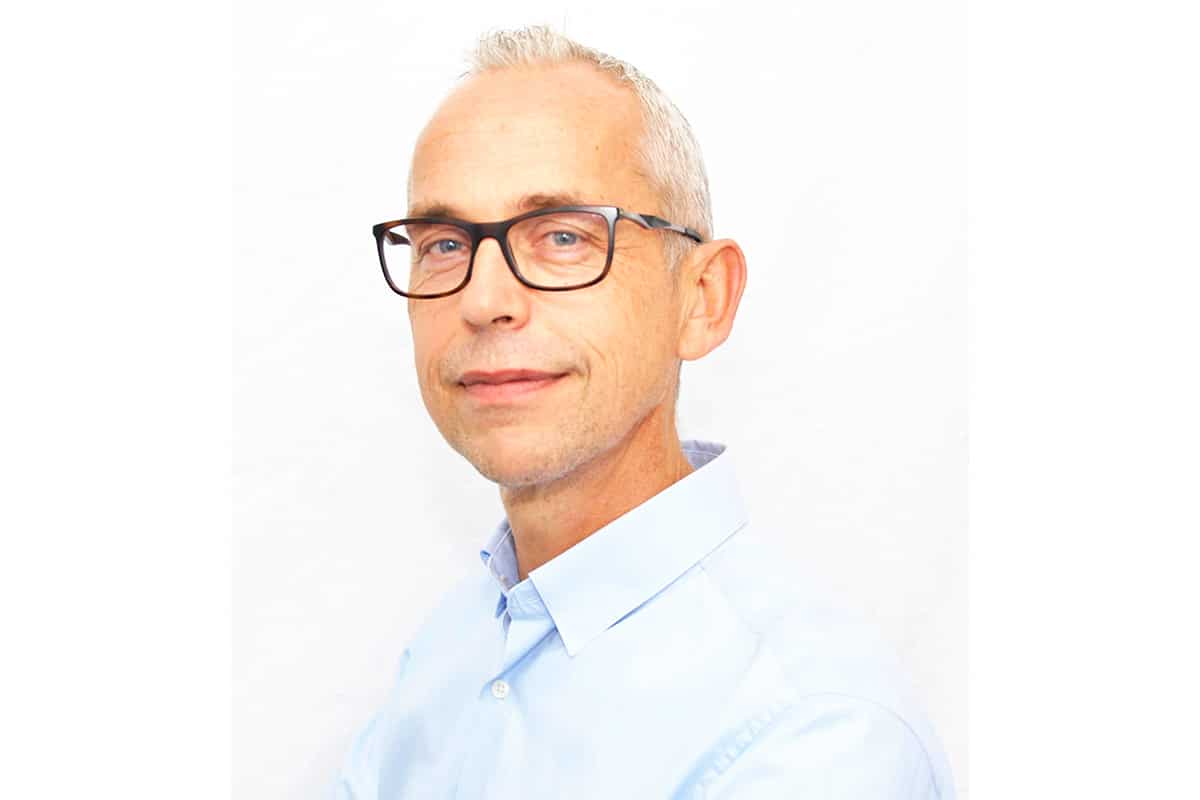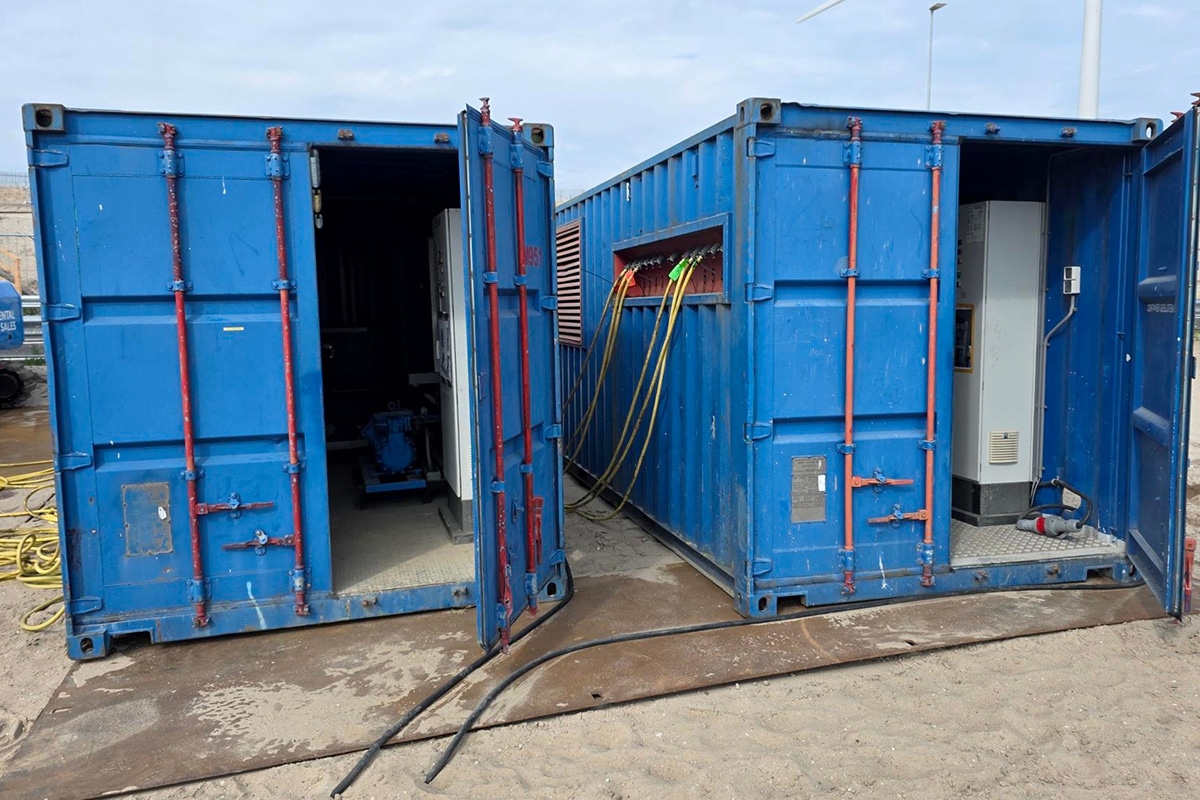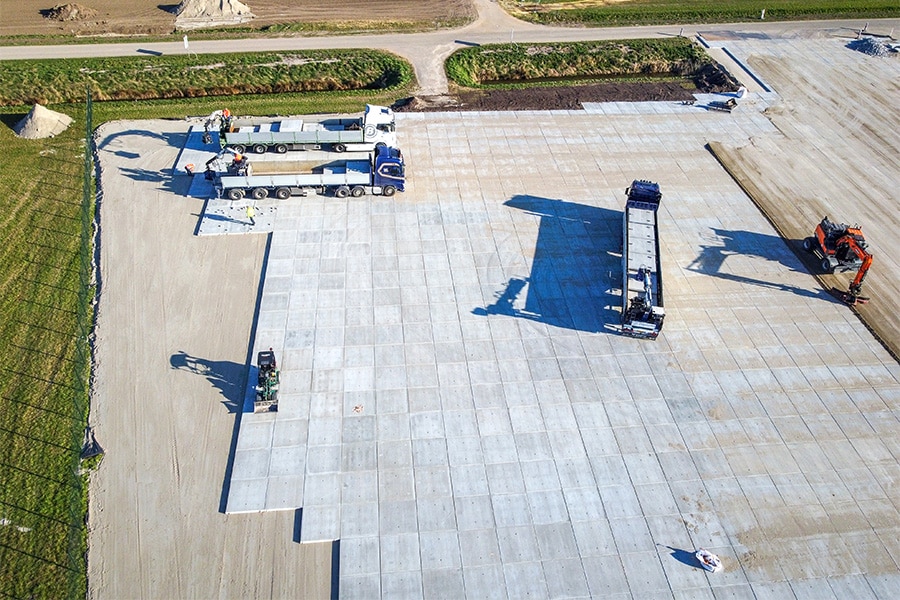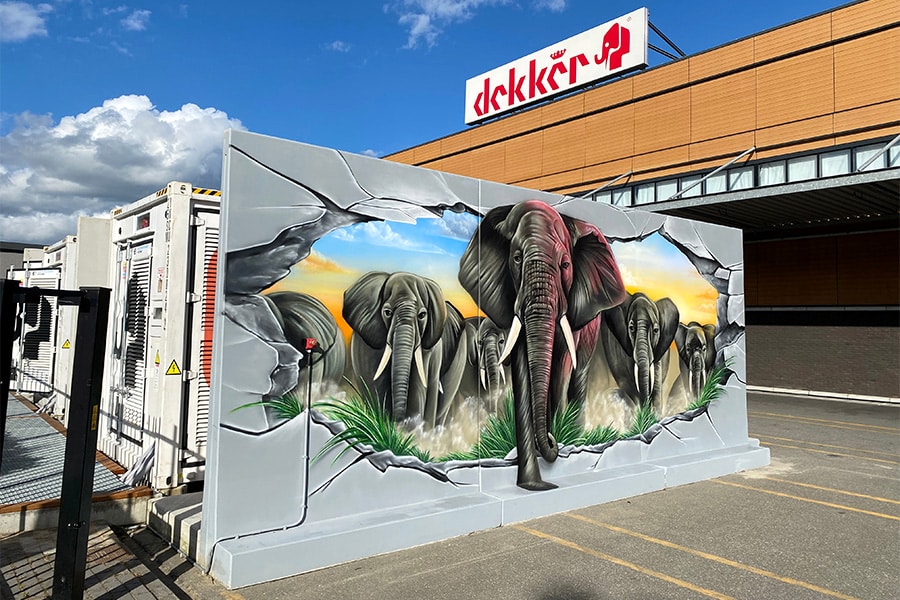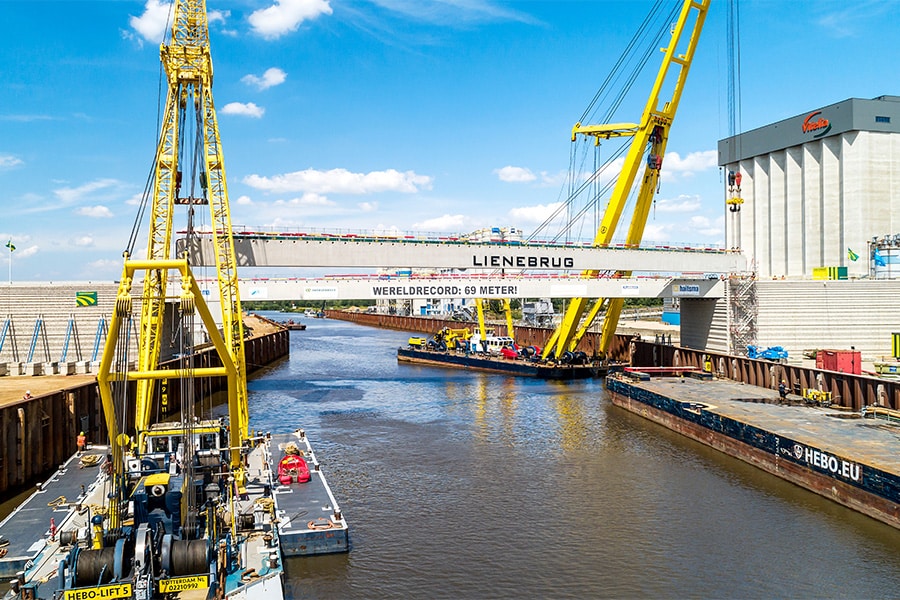
‘A seal of approval like the CSC certificate needs intrinsic motivation to be successful’
Haitsma Beton is located in the north of the Netherlands. The company is located in Kootstertille, just north of Drachten. But the location does not prevent the company from delivering to customers throughout the Netherlands. Located on the Prinses Margrietkanaal, the company has the unique opportunity to transport its gigantic concrete products by water to their final destination wherever possible. Betonhuis sat down with Wim Comello, director of the company founded in 1905 since 2013.

Haitsma specializes in manufacturing piles, girders, bridges and barriers. “In short, everything in terms of concrete needed for structures such as bridges, viaducts, parking garages, stadiums or data and distribution centers,” says Comello. “Our customers also come to us for underpinning viaducts and supporting structures for the petrochemical industry in the Botlek area, for example. Although competitors do exist, we are unique: Haitsma is capable of lifting heavy items up to 280 tons. One of the last prestressed beams we assembled was as much as 69 meters long. And its transport? So we do that by water!”
Haitsma works a lot on the basis of Design & Construct. “In such contracts, the client itself provides the design of a bridge or viaduct, for example,” Comello explains. “As a concrete construction company, we then sit around the table with the client from the beginning so that our input can be included in the design. This is how the best product is created. As a manufacturer, we make the drawings and do the calculations of our own product ourselves.”
That Haitsma Beton would join the CSC Sustainability Report spoke for itself. “We think this is important. There are three aspects to it for us. First, Haitsma is simply part of society and that brings with it a responsibility,” says Comello. “Second, we as Haitsma employees want to work together to improve the environment, because that environment is our environment. A seal of approval like the CSC certificate needs intrinsic motivation and with us that is in the company as a whole, but just as much in the individual employees including myself. Third, there is also a commercial consideration. After all, you are worth more to your customer when you contribute to the sustainability transition.”
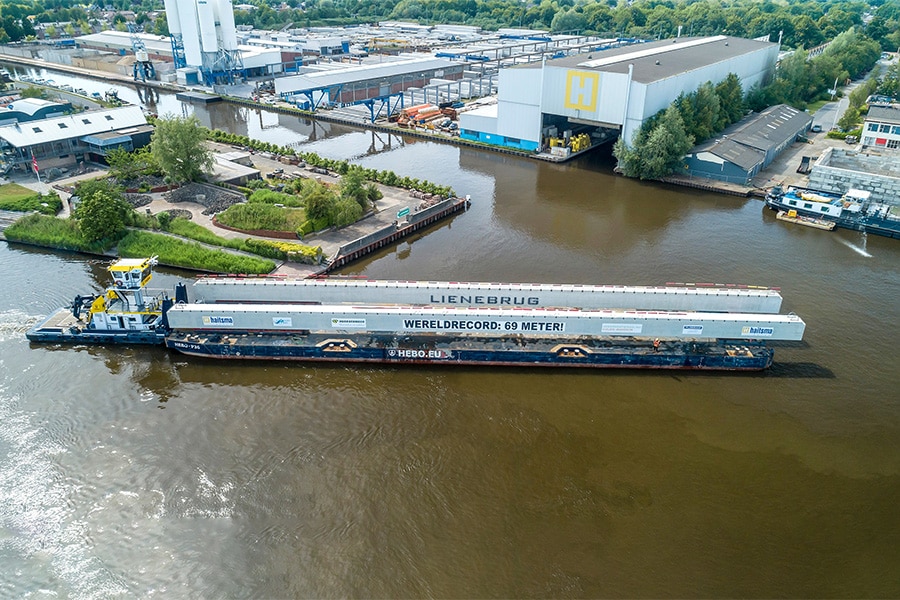
For Comello, the CSC seal of approval may not be a joy - after all, you have to put in a considerable effort - but it is especially not a burden. “Many aspects that are now required to obtain the CSC certificate, we would be doing anyway without the seal. With the certificate, we now have an assessment framework to do the right things the right way.” So, according to Comello, it is actually nice to have an auditing body come along that is knowledgeable on the subject and gives good tips. “But,” he continues, “you have to really want it yourself. If you only join the CSC Sustainability Report for commercial reasons, you don't enjoy the homework you have to do. But we are already - also voluntarily - an ISO14001 company. We just feel we are such a company now.”
Comello would like to clear up a misunderstanding about concrete companies. They are generally not known as sustainable. But this is unjustified, according to Comello. “It is true that the production of cement generates a lot of CO2. But concrete itself is very sustainable.” Haitsma also does something with that property of concrete. “We extract beams from existing structures when they are demolished and then use them in new projects. We design and build modularly, as it is called. We give concrete a second life. Concrete can additionally be reused as aggregate as a replacement for gravel in the creation of new concrete.”
All this does not alter the fact that there is still work to be done in the concrete sector. For Comello, the CSC certificate provides a frame of reference within which Haitsma is doing the things it already wanted to do. “Some things are obvious, like making all rolling stock electric. Other things are less obvious, such as pumping the water needed to make concrete itself. The more companies that carry the seal of approval, the less the sector will burden the environment. By the way, the hallmark is not only about sustainability, but also about corporate social responsibility and safety. In this way we make it visible to our customers that we are doing good business across the entire spectrum of entrepreneurship in the concrete sector. We also like to have clients visit us to show them what we are actually doing. This can then contribute to the momentum in our society regarding sustainability. This awareness requires more than a hallmark, because it has to come from within, but the hallmark is an important step in that development.”
Whitepaper Concrete Sustainability Council
(CSC Netherlands) Sustainability Report 2024 - available for download now
Betonhuis, in its role as Recognized Sustainable Operator (RSO) of the Concrete Sustainability Council (CSC), presents the third Dutch sustainability report. The report provides insight into the achievements and developments of CSC-certified companies within the concrete supply chain and shows how sustainability is being integrated step by step into the industry. The CSC Sustainability Report 2024 is now available for download via the Betonhuis publication page.
